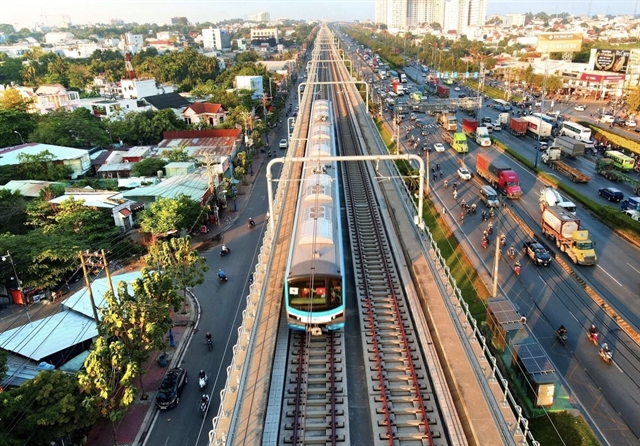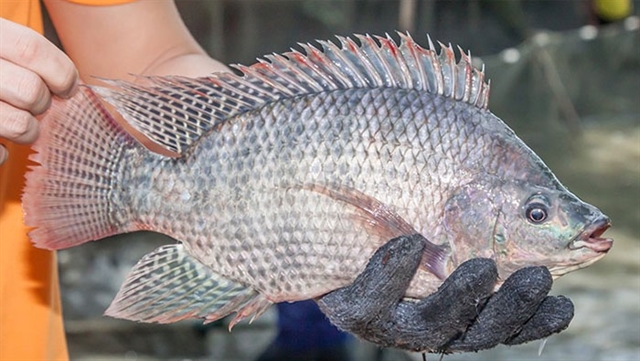 Society
Society

A team of researchers and students at the HCM City University of Science - Việt Nam National University - Ho Chi Minh City have succeeded at making a prototype lithium-ion rechargeable battery from rice husks, a common agricultural waste in Việt Nam, especially in the Mekong Delta.
HCM CITY — A team of researchers and students at the HCM City University of Science - Việt Nam National University - Ho Chi Minh City have succeeded at making a prototype lithium-ion rechargeable battery from rice husks, a common agricultural waste in Việt Nam, especially in the Mekong Delta.
Leader of the team, Vũ Tấn Phát, said: “Rice husks are rich with silica (silicon dioxide: SiO2). In order to develop low cost anode materials and good properties (less than $10 per kilogramme) for Li-ion rechargeable batteries, our research aims to use rice husks from Long An Province in the Delta and carry out a treatment process to create useful anode electrode materials.”
Unlike the costly process to create pure silicon, rice husks as the raw material source could be promising for low-cost and functional SiO2 , which has a high energy efficiency, is environmentally safe, and can be easy to scale up for synthesis, Phát said.
The process only takes two to three days for treatment of rice husks to make battery prototypes.
Vũ Tấn Phát, the leader of the team, makes battery prototypes from rice husks at the HCM City University of Science’s standard applied physical chemistry laboratory. — VNS Photo Gia Lộc |
Associate Professor Trần Văn Mẫn, head of the division of science and technology at the University of Science, said: “Silicon materials in recent years have been used because of the ability to provide far higher capacity than commercial carbon graphite used for lithium-ion rechargeable battery anodes.”
However, the synthesis of silicon materials requires high costs and is a complex process, he said.
The university team's synthesis from silica materials derived from rice husks, however, is simple and cost-effective, and provides a capacity comparable to silicon.
This is a promising direction for the development of Li-ion rechargeable battery factories in Việt Nam. Rechargeable batteries are an important energy storage device, and the demand for charging devices such as mobile phones and laptops, especially electronic vehicles, is very high.
The team's research has high potential for practical applications in the future, he added.
The rechargeable batteries made from materials from rice husks, however, is only a prototype. It could be mass-produced if it receives the attention of the state and investors, he said.
The cost for making the battery is low, so the price for selling it on the market is US$20-25 per unit, but for existing batteries it is only $38.
“Eighty per cent of the $38 are for costs for imported items,” he added.

|
| Assembling batteries. — VNS Photo Gia Lộc |
Dương Văn Minh, a student participating in this project, called the research "very important" and that environmentally friendly batteries could be useful not only in Việt Nam but around the world.
When electrode materials become available in Việt Nam, then a Li-ion rechargeable battery production line can be set up and batteries will no longer need to be imported from other countries, or the number of imports will be reduced substantially.
“As a student, I learned new knowledge through taking part in research,” Minh said.
Phát added that the next step is registration for intellectual property and call on investment to commercialize their research.
The research in December won first prize at the Việt Nam Social Innovation Challenge, a competition to support and provide assistance in incubating outstanding ideas, technologies, products, services and methods to address urgent social and environmental issues.
The team will take part in the Mekong Challenge Finals, which is open to all university students and recent graduates in the Mekong Region plus Bhutan. It will be held in Myanmar on February 14 and 15.
The winning team will travel to the US to compete in the International Business Model Competition in May 2020. — VNS




